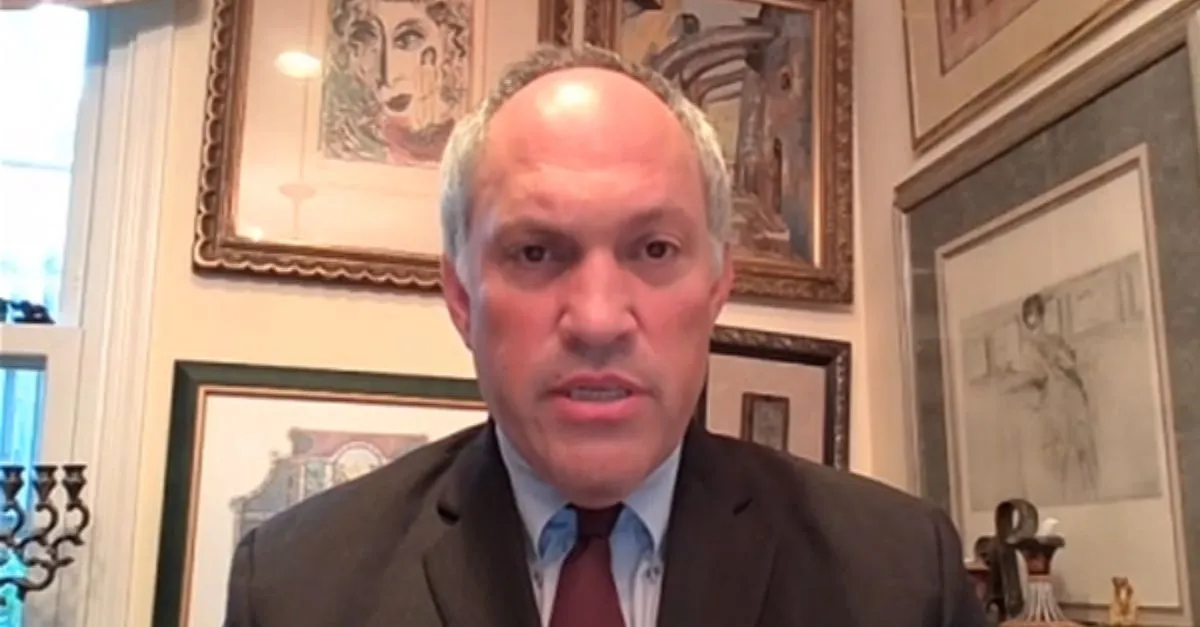- By Yashashvi Tak
- Sun, 22 Jun 2025 12:58 PM (IST)
- Source:JND
As US President Donald Trump's meeting with Pakistan Army chief Asim Munir created ripples across global politics, a former Pentagon official exposed the transactional nature of American-Pakistani relations. American historian Michael Rubin, who served in the Pentagon previously, said the US offers incentives to Pakistan when it aligns with American interests, but withdraws them once those interests are no longer served.
The former Pentagon official's remark came as the US on Sunday launched attacks on nuclear sites in Iran which is involved in a military conflict with Israel. Talking about Pakistan's possible role in the ongoing hostilities, Rubin said, "It's likely that some of the US operation was discussed with Asim Munir, maybe not in detail, but maybe something to the effect of passing some messages to Iran or talking about the possibility of overflights. In 2003, when we started the Iraq War, we made a similar deal, ironically with Iran itself, that American planes could land on Iranian airfields.
ALSO READ: Radiation Leak In Iran After US Strikes? Here’s What Tehrab, UN Nuclear Watchdog IAEA Said
“There is a pattern in American-Pakistani relations where we will offer Pakistan incentives when we need them, and as soon as we stop needing them, then we stop being so generous,” he told ANI.
He added that the recent escalation in the Israel-Iran conflict, triggered by US airstrikes on key Iranian nuclear sites, including Fordow, is unlikely to escalate into a full-fledged war. The US hit three major Iranian nuclear facilities, including Iran’s primary uranium enrichment site.
"I don't think it will be a full-fledged war. I suspect the Europeans, the United Nations, and maybe even Donald Trump himself are going to try to offer Iran an off-ramp to stand down, and again, Donald Trump has made clear that it's not the US's desire to decapitate Iran's leadership. While the Israelis may want to get rid of Supreme Leader Ali Khamenei and have regime change, the United States' policy is not to do that. In fact, the United States wants to keep Ayatollah Khamenei alive. If for no other reason, then if there is a formal surrender, they want someone to sign the surrender and turn over power to a provisional authority so that no vacuum comes to exist," said Rubin.
#WATCH | Washington, DC | Former Pentagon official Michael Rubin says, "...There is a pattern in American-Pakistani relations where we will offer Pakistan incentives when we need them, and as soon as we stop needing them, then we stop being so generous."
— ANI (@ANI) June 22, 2025
"It's likely that some… pic.twitter.com/3O41MYjERr
US President Donald Trump confirmed the attacks in Fordow, Natanz and Esfahan. In a Truth Social post, Trump said, "We have completed our very successful attack on the three Nuclear sites in Iran, including Fordow, Natanz, and Esfahan. All planes are now outside of Iran air space. A full payload of BOMBS was dropped on the primary site, Fordow. All planes are safely on their way home. Congratulations to our great American Warriors. There is not another military in the World that could have done this. NOW IS THE TIME FOR PEACE! Thank you for your attention to this matter."
Israeli Prime Minister Benjamin Netanyahu in turn hailed Trump, saying the US has done something that no country could do. "America has been truly unsurpassed. It has done what no other country on earth could do. History will record that President Trump acted to deny the world's most dangerous regime, the world's most dangerous weapons," Netanyahu said in a video address on X.
Iran's Foreign Ministry termed the military aggression by the US as an act of war. In a statement posted Sunday morning, the ministry said, “The world must not forget that it was the United States - during an ongoing diplomatic process - that betrayed diplomacy by supporting the aggressive actions of the genocidal and lawless Israeli regime,” the ministry said. “Now, by completing the chain of violations and crimes committed by the Zionist regime, the US has itself launched a dangerous war against Iran.”
It added: “The Islamic Republic of Iran reserves its right to resist with full force against US military aggression and the crimes committed by this rogue regime, and to defend Iran's security and national interests.”

